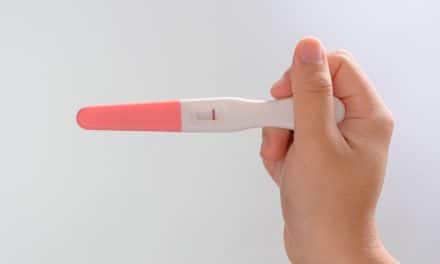Most women take their fertility for granted from the moment they get their first period. But having your period is not a guarantee of fertility. To find out if everything is “working properly”, women need to undergo specific tests. You may never have thought about doing it, but it is definitely worth it, because if there is any problem, you will have more time to act, get information, make decisions and treat it.
How can you find out? Well, it’s very simple. First, you should check your ovarian reserve. All you have to do is have a gynaecological ultrasound scan to see how many follicles are growing in each of your ovaries. Inside the follicles, oocytes or eggs will grow (normally one in each follicle). “In general, a total count of more than 7 follicles is considered normal,” explains Dr Manuel Álvarez, a fertility specialist at Dexeus Mujer.
Ovarian reserve testing is completed with an anti-müllerian hormone (AMH) test, which is also very easy. All you need to do is take a blood test. AMH – in case you have never heard of it – is a protein produced in the ovaries that makes it possible to assess the number of eggs (reproductive potential) that a woman has at any given time. It is also important to have a gynaecological examination to detect any possible abnormalities or structural problems, such as a malformation or dysfunction in your uterus or your reproductive system.
In addition, there are conditions that can compromise fertility: endometriosis, pelvic inflammatory disease, polycystic ovary syndrome (PCOS), uterine fibroids, autoimmune disorders (this requires an evaluation by other specialists), certain sexually transmitted diseases, etc. But if you have regular gynaecological check-ups, many of these diseases can be detected and treated.
On the other hand, certain lifestyle factors are detrimental to fertility and should be avoided. So, since June is infertility awareness month, here is a checklist to take care of your fertility:
- Stay at your weight. It has been found that, in general, women who are overweight or obese may have more problems in achieving a pregnancy and carrying it through successfully and without complications.
- Avoid a sedentary lifestyle. Regular exercise has cardiovascular, metabolic, endocrine and neurological benefits: it promotes blood flow, protects your heart, keeps cholesterol at bay, increases physical endurance, strengthens your bones and muscles, and helps control body weight and blood sugar levels. It also reduces stress, improves sleep quality and mood. All this translates into an improvement in physical fitness that promotes the proper functioning of your body and increases your personal well-being, which, indirectly, promotes reproductive activity.
- Take care of your diet. Although fertility does not depend on our diet, a healthy diet strengthens your general state of health and, therefore, favours reproductive activity. On the other hand, absorption problems or a lack of certain nutrients can cause problems in the development of your pregnancy and your health or that of your baby. Therefore, in addition to a balanced diet, you should increase your iron intake, take omega-3 fatty acids, ensure a good supply of calcium and vitamin D and take supplements such as folic acid (two or three months before you start looking for pregnancy). If you have any intolerances or intestinal absorption problems, you should see a nutrition or endocrinology specialist.
- Fight stress. Stress can affect ovulation and decrease sexual desire. Sometimes you may not even be aware of it or recognise it. So be on alert: if you find it hard to concentrate, notice changes in your sleeping habits (you wake up earlier or find it hard to sleep), feel depressed, have anxiety, notice you have distanced yourself from your friends, or if your appetite or weight change, it may be due to stress.
- Quit smoking. Although no direct cause-effect relationship between smoking and infertility has been established, its toxic effect has been clearly demonstrated. Cigarette smoke contains thousands of components with various effects (nicotine, nitrates, polycyclic aromatic hydrocarbons, carbon monoxide, benzene, ammonia, tar, etc.) and even heavy metals such as lead and cadmium. Each and every stage of your reproductive function is a “target” for these compounds: the egg maturation process, hormone production, embryo transport, endometrial receptivity, uterine blood flow, the formation of blood vessels in the endometrium, etc.
- Avoid alcohol. If you want to get pregnant, you should avoid alcohol. Alcohol has a toxic effect on the body. It causes gastric and hepatic alterations that hinder the absorption and storage of nutrients and vitamins. In addition, it has a neurotoxic effect on the nervous system. It also affects the immune system and can cause arrhythmia, congestive heart failure and even coronary heart disease. In men it impairs sperm quality and in women it can disrupt hormone regulation and menstrual cycles.
- Don’t let your guard down against STIs. Always protect yourself with barrier methods if you are not in a stable relationship or if you are not sure whether your partner is free of sexually transmitted infections. Remember that many STIs do not cause any symptoms and some, if left untreated, can compromise fertility.
- Breathe fresh air whenever you can. Several studies have found that air pollution decreases sperm quality and increases the risk of miscarriage.
- Have regular health checks. In addition to not skipping gynaecological check-ups, it is important to be aware of other issues, such as thyroid problems or certain metabolic or endocrine dysfunctions that can have an impact on fertility.
- If you have a partner, include them in your checklist! It is important that both members of the couple take care of their sexual and reproductive health and follow this advice. If you want to have children together, you can also consider having a couple’s fertility test to check if you have any genetic incompatibility problems.















